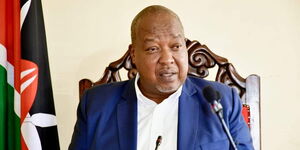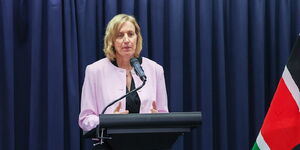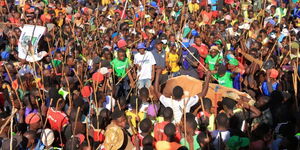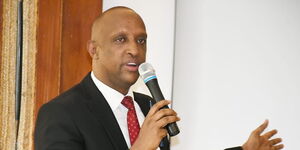Thousands of students could miss their Kenya Certificate of Secondary Education (KCSE) and Kenya Primary School Education Assessment (KPSEA) due to the ongoing push and pull between the government and schools, Gilgil Member of Parliament Martha Wangari has warned.
This warning comes barely a day after reports emerged of cash-strapped schools sending pupils home over unpaid fees.
While confirming that learners had been sent home, the MP said that those in Gilgil had been somewhat lucky to escape the fate facing students in other schools, thanks to funding from the county and the National Government Constituency Development Fund (NG-CDF).
“I have met some Grade 6 children going home. I wonder why they are sending 12-year-olds home,” she said.
“Last term, money did not come in. We are telling the Ministry of Education and Treasury, before you release any other funding, pay schools,” she added.
The confusion and the chaos facing learners come at a time when schools are preparing candidates for national examinations, including KPSEA, the Kenya Junior School Education Assessment (KJSEA), and KCSE, all scheduled between October and November.
In Makueni, secondary schools have stopped most operations owing to the delayed capitation. According to some school heads, schools were to receive 30 per cent of the capitation in the second term, but only received 10 per cent.
During the just-started third term, schools expect to receive 20 per cent, but many are not optimistic. The Kenya Secondary Schools Heads Association (KESSHA) claims that because day schools only use capitation funds to cover operating expenses, they are suffering the most from the financial strain.
Boarding schools, on the other hand, are not exempt; some principals have sent students home, while others have given parents until Wednesday to pay fees or face having their kids sent away.
According to the KESSHA Makueni Chairman, Johnson Ndivo, for a third time in a row, the government has failed to release funds in time, affecting schools' preparation for national exams.
“We are in the third term. An important term for principals to purchase chemicals for national exams and buy revision materials. Without capitation, there is nothing that we go on in schools,” Ndivo warned.
Last Friday, Education CS Ogamba said the Ministry of Education had received funds from the Treasury but is still verifying data to weed out 'ghost' learners and schools before releasing money to institutions.
On Monday, August 25, Treasury Cabinet Secretary John Mbadi said his ministry would release a total of Ksh23 billion to all schools and additional funds to the Higher Education Loans Board (HELB) following a directive from President William Ruto within the week.
But the exercise has left many schools seeking alternatives to fund their operations before the funds hit their accounts.












